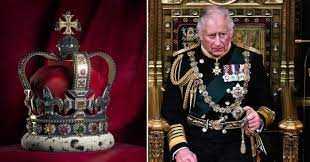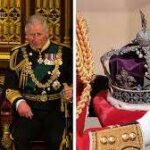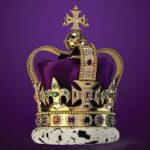
Buckingham Palace have revealed their plans for a full weekend of celebrations, as part of the Coronation of King Charles III, in the spring of this year.
The actual service will take place Saturday 6 May at Westminster Abbey, but officials have announced that arrangements have been made for a concert featuring “icons” from the world of music, alongside orchestras and a diverse “coronation choir”, the following day at Windsor Castle.
The general public are being encouraged to arrange street parties of their own in what is being called the “Coronation Big Lunch” on that same day, with then on Monday the 8th – which has been made a Bank Holiday across the UK – people being invited to take part in “The Big Help Out”, hoping to persuade mass participation in carrying out voluntary work within their own communities, with the aim of creating a lasting legacy from the Coronation weekend.
Demonstration of royal importance
Clearly the palace wants to use the Coronation as a means of demonstrating to the British public that the monarchy still has a vital role to play in a multicultural nation, which is currently in the stranglehold of a cost-of-living crisis, and dealing as best they can with a rake of budget cuts and having to work daily routines around multiple strikes by public-sector workers.
Aware of huge responsibility
Following the passing of Queen Elizabeth II on 8 September, 2022, Charles was immediately named King, and was formally declared head of state two days later. He said at the time how deeply aware of his heavy responsibilities he was, and of the great inheritance he was taking on.
He vowed to uphold a constitutional government and seek peace, harmony and prosperity for the citizens of the United Kingdom, and the Commonwealth realms and territories around the world. The ceremony on 6 May will rubber-stamp everything; with the King and his wife Camilla, the Queen Consort, being officially sworn into their sovereign roles.
Oldest monarch to assume throne
King Charles III will be making history at his Coronation when he becomes the oldest monarch to assume the throne at 73 years old. There has been strong speculation that this ceremony, which is being planned under the code name “Operation Golden Orb”, will be a great deal different to that of his mother, Queen Elizabeth II, back in 1953.
It will almost certainly be shorter in duration, as Her Majesty’s service lasted three hours; a school of thought is that this one could be reduced by at least half, if not a little more. It is also expected to be far more diverse, and with a dramatically smaller guest list.
Head of Church of England
It is not actually necessary for the new monarch to be crowned as King, he automatically assumed the role the very moment that Queen Elizabeth II died. However, it was never really in doubt that there would be one as it is symbolic religiously, and it formalises his role as the head of the Church of England, marking the handing over of title and powers to him.
These ceremonies have remained pretty much the same for over a thousand years, but it is the only one of its type still in existence anywhere in Europe.
Procession from palace to abbey
It will begin with a procession from Buckingham Palace to Westminster Abbey with Charles and Camilla travelling in a modest convoy, which will be significantly larger for the return trip, when other members of the Royal Family will join them. It is thought that the dress code may be more relaxed and modern too, with more inclusivity anticipated for the service, with representatives of a range of religions expected to be in attendance.
Stages of the coronation
Typically there are six stages to the coronation service:
The recognition: Charles will stand alongside the Coronation Chair and be presented to those gathered inside the Abbey by the Archbishop of Canterbury, Justin Welby. They will be invited to shout: “God Save the King!” followed by the sounding of trumpets.
The oath: Charles will then swear to uphold the law and the Church of England.
The anointing: He will then have his ceremonial robe removed and he will be seated in the Coronation Chair. A canopy made of cloth of gold will be held over the chair to conceal Charles from view. The Archbishop will anoint the King’s head, hands, and breast with holy oil, made to a “secret” recipe, although it is widely known to contain ambergris, orange flowers, roses, jasmine and cinnamon.
The investiture: He will then be presented with items including the Royal Orb, representing religious and moral authority, the Sceptre, that represents power, and the Sovereign’s Sceptre, which is a rod of gold topped with a white enamelled dove, a symbol of justice and mercy. Finally, the Archbishop will place the solid gold, 17th Century St Edward’s Crown on the King’s head.
It is exceptionally heavy and only used at the moment of crowning. It contains the Cullinan II diamond, sometimes called the Second Star of Africa. It was given to Edward VII on his 66th birthday by the government of the Transvaal, a former British crown colony, in what is now South Africa.
The enthronement and homage: The King will leave the Coronation Chair and move to the throne. Peers will then kneel before him to pay homage; although this is one part thought to be in doubt, with many believing this will be overlooked and considered outdated.
The same process will then take place for the Queen Consort. It has not yet been revealed as to whether Camilla will wear the Queen Mother’s Coronation crown containing the Koh-i-Noor, which is one of the largest cut diamonds in the world, and controversially India, Pakistan, Afghanistan and Iran have all made claims to it.
Stubborn Harry may not show for father’s huge event
It is unclear whether or not Prince Harry will be attending his own father’s Coronation. Such a notion would have been unthinkable just a few years ago, but the on-going rift which has intensified since the release of his highly contentious memoir, Spare, has cast considerable doubt, with the Duke of Sussex refusing to commit.
Indeed, if anything he suggested it unlikely when he remarked that “the ball is in their court”, referring to not only the King, but his brother Prince William too; whilst from their point of view there will be enormous resentment following Harry’s vindictive comments in several chapters of his heavily criticised book.
Guest list not yet known
The Coronation is classed as a state occasion, which by default means the government has control of the guest list. Therefore, in addition to the Royal Family, it will be attended by the Prime Minister, representatives from the Houses of Parliament, heads of state, and other royals from around the world; it is known for example that Prince Albert and Princess Charlene of Monaco will be in attendance.
For Queen Elizabeth’s service there were 8,251 in attendance, but the Abbey had to have five months work undertaken to make room for the installation of extra seating beforehand. The normal capacity now is approximately 2,200 and that seems likely to be the cut off figure this time around.
Weekend of celebrations being organised
The weekend plans that have so far been announced include:
Saturday, May 6: Procession from Buckingham Palace to Westminster Abbey, followed by the religious service conducted by the Archbishop of Canterbury, the exact times for which will be released at a later date. This will seemingly reflect the Monarch’s role in today’s society and look towards the future, while respecting the long-standing traditions and pageantry.
After travelling back to the palace in what will be referred to as the “Coronation Procession” , the King and Queen Consort will be joined on the balcony by other members of the Royal Family to acknowledge the expected crowds.
Top stars to turn up at concert
Sunday, May 7: Windsor Castle will host a “Coronation Concert” bringing together what is being described as “global music icons and contemporary stars” for a celebratory event. It is said that the theme will be “Lighting up the Nation,” and as such will also include light projections, lasers and drones to illuminate notable locations right across the UK.
Although the actual performers have not yet been made public, organisers are promising “some of the world’s biggest entertainers”. There will be a choir which is going to be chosen from amateur choirs, including from the NHS, refugees, LGBTQ+ singing groups, and deaf-signing choirs.
It has been stated that much of the in-person audience will consist of volunteers associated with Charles and Camilla’s charities, and it is understood that there will be a national ballot for several thousand people to receive a pair of free tickets each, to also attend.
Additionally, those tasked with arranging the events of the weekend are hoping to encouraged neighbours to “share a meal, sip on a cup of tea, or host a street party together” as part of the “Coronation Big Lunch”, earlier on that day.
Volunteers in the community
Monday, May 8: With the day being declared a bank holiday, Prime Minister, Rishi Sunak initially said that he hoped it would give people the opportunity to “come together and celebrate”.
However, since then King Charles has put forward an idea which is being called “The Big Help Out” in which he hopes that individuals or groups, will volunteer in their own communities to support their local area initiatives, with the aim of creating a volunteering legacy, which can last well beyond the Coronation weekend.
Government attempt to justify expense
As with anything that has a cost attached to it, the Coronation has attracted criticism for the huge expense that will be thrown at it, at a time when many people are struggling badly with the cost of living crisis, unable in lots of cases, to pay basic household bills.
As a state occasion, it will be paid for by the UK government and whilst they are sensitive to the troubles of a high proportion of the general public, they also consider it to be an important diplomatic opportunity to put the country on show and demonstrate its status to the wider world; as well as respecting its own traditions.





0 Comments